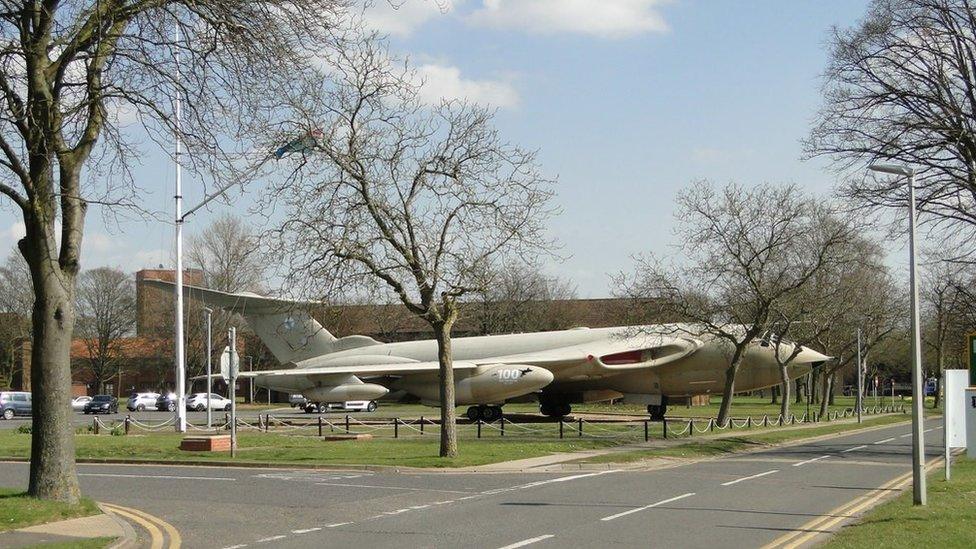Operation Victor search: A missing military plane and the Mourne fishermen
- Published
A group of Northern Ireland trawler men helped find parts of the plane including the pilot's watch
"Probably the most memorable day was when we found the pilot's watch, and it had stopped exactly when the plane had hit the water."
These are the words of Mourne fisherman Sam McKibben, recounting the little-known story of his role in a secret salvage mission to find a missing RAF plane.
More than 60 years have passed since he and a group of trawler men from Northern Ireland were asked by British authorities to aid in Operation Victor Search.
You could be forgiven for not being familiar with the codename, as the military operation was shrouded in secrecy for many years.
Now Sam is one of the last surviving members of his crew who can give a first-hand account of what happened.
The mystery crash
On 20 August 1959 a prototype British bomber - a Handley Page Victor B.2 - disappeared during flight trials along with its five crew members.
As weeks passed, hope of finding survivors faded and their bodies would never be found.
But in the midst of the Cold War the British military needed to know why the plane had crashed.
Was it a mechanical fault or some wider flaw with the aircraft's design?
Some eyewitness accounts had the aircraft hitting the water at high speed off the coast of Wales.
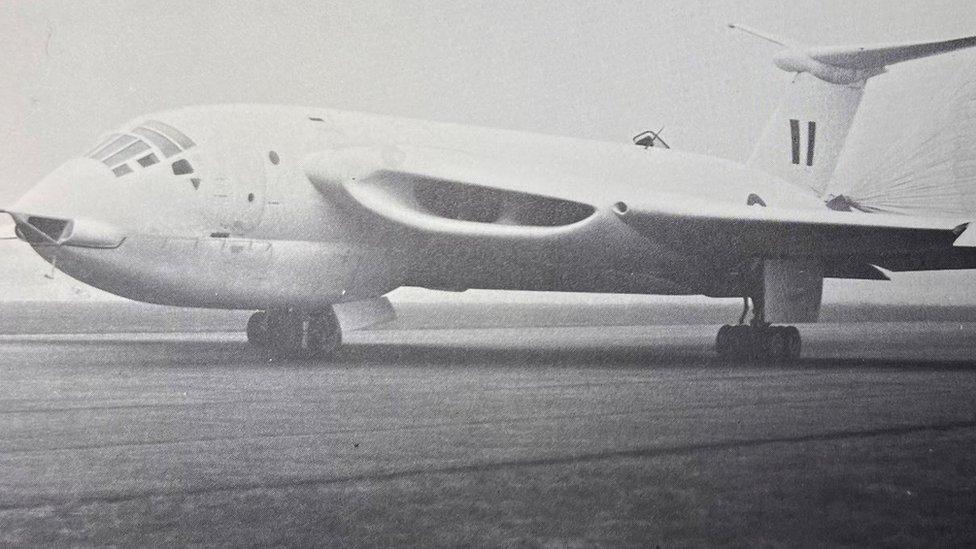
The plane disappeared during flight trials along with its five crew members
More than 40 ships and 4,000 people from the UK would be recruited to help in the salvage mission.
Although not widely known at the time, among those taking part were nine fishing trawlers from the Mourne fleet in Northern Ireland - six from Kilkeel and three from Annalong.
Their fishing nets would be used to dredge the seabed and recover parts of the plane and key clues around the cause of the crash.
Rough seas
The crew toiled at sea for months, often in atrocious weather through a wild winter.
By the end of their mission the Mourne trawlers, backed by other salvage vessels, had carried out more than 12,000 hauls and nearly 600,000 pieces of the missing bomber had been recovered.
One of the Kilkeel vessels, Green Pastures, set the record for a single day, netting more than 7,000 fragments of the aircraft.
The total catch presented 70% of the plane, which had shattered into thousands of pieces upon impact.
It gave British authorities enough information to be reasonably satisfied about the cause of the accident.
It was concluded that only minor changes were needed to resolve the problem that caused the crash, allowing the bomber to enter service in February 1962.
With the salvage mission complete, the Mourne trawler men went back to their day jobs.
The crew
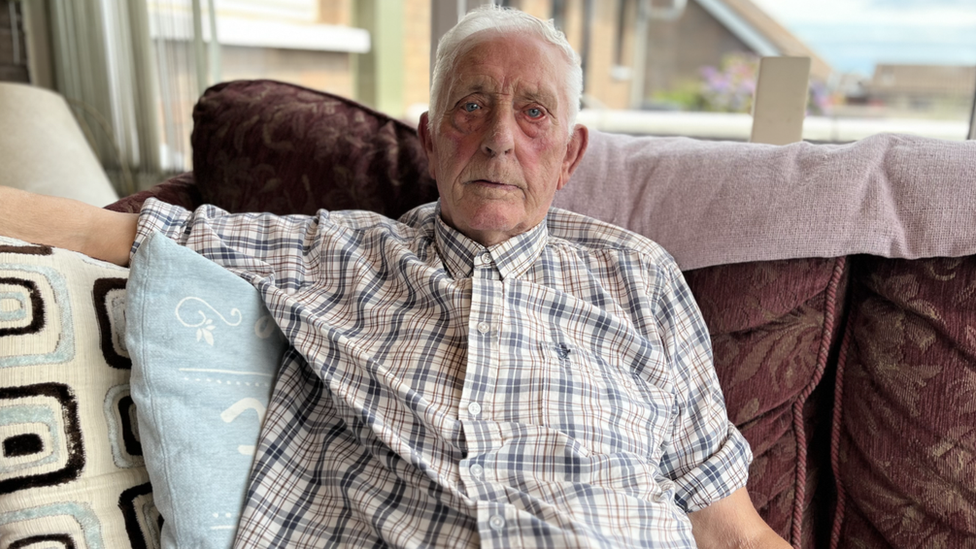
Sam McKibben was one of the youngest members of the Mourne crew involved in the salvage mission
Sam McKibben was one of the youngest members of the Mourne crew involved in the salvage mission.
He has long since retired from his seafaring days and is in his late 80s.
"We would be out seven or eight days at a time fishing for the plane," he said.
"One day we got 400 pieces about the size of your nail and the biggest bit we picked up was about 20ft long.
"I'll never forget finding the pilot's watch, we weren't sure what it was at first but then we were really surprised."
Amazing stories like Sam's would go largely untold for years after Operation Victor Search because of the military sensitivities surrounding the mission at the time.
But in 1979, a member of one of the other vessels involved in the search received permission to publish his account in a book.
As well as his own experience, Douglas A Koster meticulously researched the lead up and aftermath of the crash.
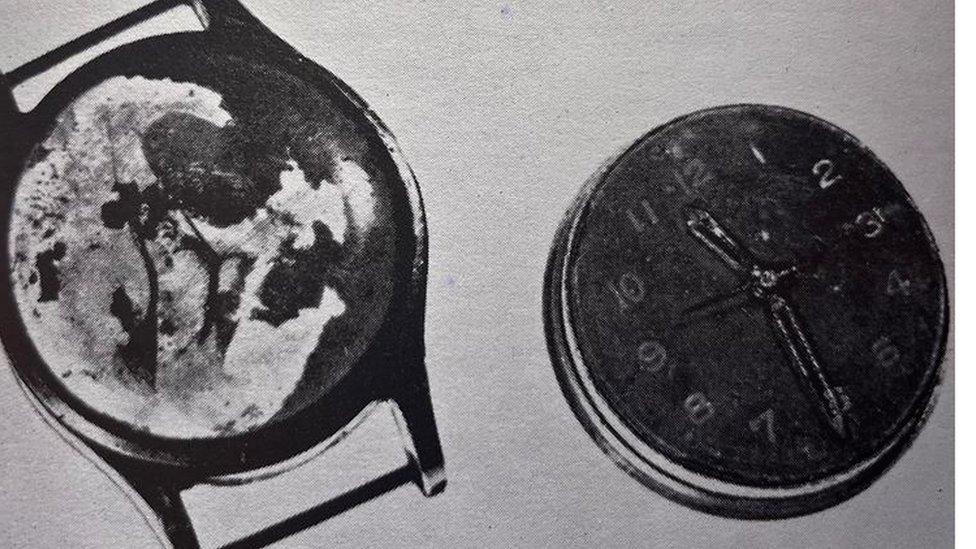
Crews located one of the pilot's watches during their search
But the Northern Ireland connection was relatively unknown until the early 1990s when the book was put in front of the then editor of the Mourne Observer, Terence Bowman.
"Those men kept searching for that wreckage in the worst of conditions and it's amazing what they were able to pull off," he said.
"These days the general public know very little about it and I think it's one of the greatest local stories never talked about."
In the summer of 1994, the Mourne Observer would run a serialised abridged version of the book, highlighting the role of the Mourne trawler men.
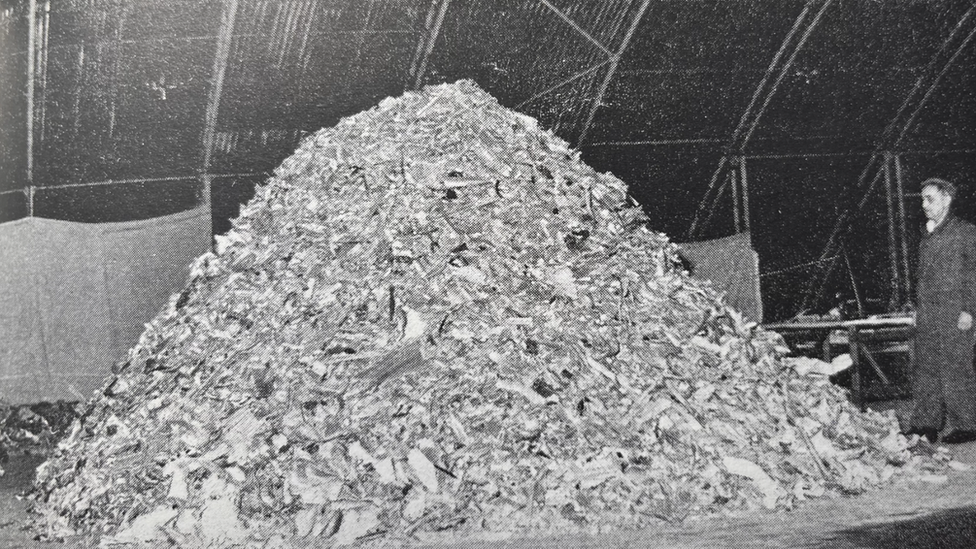
Nearly 600,000 pieces of the missing bomber were recovered
Mr Bowman stepped down as editor in 2011 but has continued to try and raise awareness about Northern Ireland's connection to Operation Victor Search.
"The paper did its bit at the time all those years ago, but the print medium is difficult to access when its not online," he said.
"The reality is when you put operation victor into a search engine, virtually nothing comes up.
"That's why it's great that people like Sam McKibbin are still about to give their first-hand account of what happened.
"Because I would hold to this day that this is one of the greatest searches of its kind that ever took place in British waters."
- Published27 September 2022
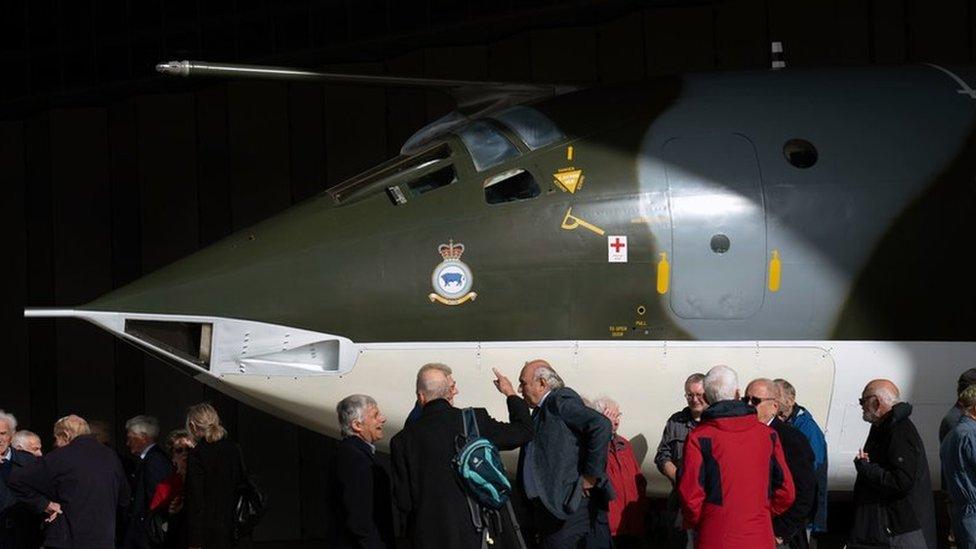
- Published10 September 2020
